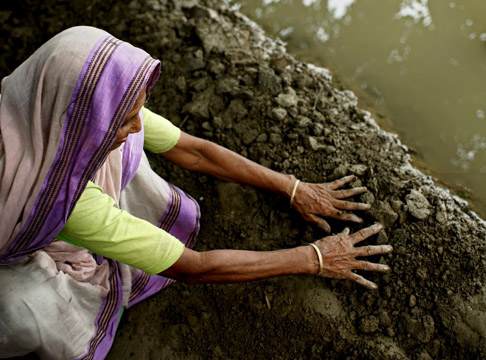 The now infamous McLean, de Freitas and Carter paper in the Journal of Geophysical Research (see Mother Nature’s Sons) has attracted a damning response from some of the biggest names in climate science, including a strong Kiwi contribution*. A comment has been submitted to JGR by Grant Foster, James Annan, Phil Jones, Michael Mann, Brett Mullan, Jim Renwick, Jim Salinger, Gavin Schmidt, and Kevin Trenberth. McLean et al’s “analysis is incorrect”, “seriously overestimates” the link between ENSO and global temperatures, and their paper provides no support for any claim about recent global temperature trends. Here’s the abstract:
The now infamous McLean, de Freitas and Carter paper in the Journal of Geophysical Research (see Mother Nature’s Sons) has attracted a damning response from some of the biggest names in climate science, including a strong Kiwi contribution*. A comment has been submitted to JGR by Grant Foster, James Annan, Phil Jones, Michael Mann, Brett Mullan, Jim Renwick, Jim Salinger, Gavin Schmidt, and Kevin Trenberth. McLean et al’s “analysis is incorrect”, “seriously overestimates” the link between ENSO and global temperatures, and their paper provides no support for any claim about recent global temperature trends. Here’s the abstract:
McLean et al. [2009] (henceforth MFC09) claim that the El Nino/Southern Oscillation (ENSO), as represented by the Southern Oscillation Index (SOI), accounts for as much as 72% of the global tropospheric temperature anomaly (GTTA) and an even higher 81% of this anomaly in the tropics. They conclude that the SOI is a “dominant and consistent influence on mean global temperatures,†“and perhaps recent trends in global temperaturesâ€. However, their analysis is incorrect in a number of ways, and greatly overstates the influence of ENSO on the climate system. This comment ï¬rst briefly reviews what is understood about the influence of ENSO on global temperatures, then goes on to show that the analysis of MFC09 severely overestimates the correlation between temperature anomalies and the SOI by inflating the power in the 2–6 year time window while ï¬ltering out variability on longer and shorter time scales. It is only because of this faulty analysis that they are able to claim such extremely high correlations. The suggestion in their conclusions that ENSO may be a major contributor to recent trends in global temperature is not supported by their analysis or any physical theory presented in that paper, especially as the analysis method itself eliminates the influence of trends on the purported correlations.
Looks to me like there’s no academic wiggle room for McLean, de Freitas and Carter. They got it very wrong. The big question now is how they managed to sneak the paper through peer-review. Meanwhile, claims that McLean et al shows “that most of the late 20th century global warming and cooling can be attributed to natural climate processes” will remain up at crank web sites, and Carter and de Freitas will consider their real work — to provide more propaganda for the denial machine — well done.
[* Brett Mullan and Jim Renwick are at NIWA, Jim Salinger’s now in the same department at Auckland University as CdF (which must make for interesting conversation over morning coffee), and Kevin Trenberth is a New Zealander.]
Like this:
Like Loading...

 The now infamous McLean, de Freitas and Carter paper in the Journal of Geophysical Research (see
The now infamous McLean, de Freitas and Carter paper in the Journal of Geophysical Research (see  An attendee at Nick Smith’s and Tim Groser’s public “consultation†at Hamilton last week was distinctly unimpressed. He said so in a
An attendee at Nick Smith’s and Tim Groser’s public “consultation†at Hamilton last week was distinctly unimpressed. He said so in a  The Oxfam briefing paper
The Oxfam briefing paper